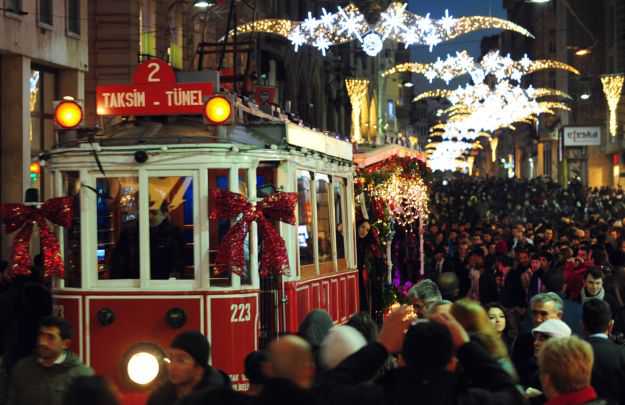One of the world’s great cities is growing too big for its britches.
BY ANDREW FINKEL

View photos of the dark side of Istanbul.
ISTANBUL — Istanbul famously straddles two continents, but pity the working stiff who commutes to Europe in the morning and home to Asia at night. The journey along the feeder roads funneling into the city’s Bosphorus Bridge is a bumper-to-bumper ordeal.
Once onto the bridge itself, the view is suddenly extraordinary. To the south, across the water, is the skyline forged by the rulers of the Byzantine and Ottoman empires. To the north are the summer palaces and the stately waterfront homes of Turkey’s elite. But beneath the picturesque vistas lies a city growing dangerously out of control.
In many ways, Istanbul is thriving. A joint study by the Brookings Institution and the London School of Economics named it the world’s best-performing city, in terms of income and employment growth, over the past year. Meanwhile, Istanbul came out on top of an informal survey of the cities that New York Times readers most want to visit.
A provincial backwater that reinvented itself in 330 A.D. as the New Rome, Istanbul now serves as Turkey’s own New York. It produces well over a quarter of the country’s GDP, its businesses generate 60 percent of Turkey’s trade, and its citizens and businesses pay 40 percent of the country’s taxes. Districts covered with mulberry orchards little more than two decades ago have now sprouted bank towers and high-rise corporate headquarters. In the gardens of the Istanbul Stock Exchange, the statue of a vast marble bull is poised in a perpetual charge.
But even while Istanbul is already on the way to becoming the commercial capital of a region well beyond Turkey’s frontiers, the city’s ambitions know no end. Recessions in Europe and rebellions in North Africa have only strengthened the conviction that the tide is drifting Turkey’s way — that, if it plays its cards right, Istanbul can become the new London or Hong Kong.
Yet the city’s confidence may turn out to be its curse. Relentless urban expansion threatens to lay siege to the former imperial capital and scrub away its natural beauty.
Istanbul is a city under construction. From the faux-Ottoman housing estate on the Thracian approach to the city — with its own mock Bosphorus canal — to the $2.5 billion conversion of a government office block into a sprawling office complex at the entrance to the first Bosphorus bridge, the feeding frenzy over Istanbul’s relentless expansion has also transformed the city’s politics.
Istanbul has always been a magnet for the Turkish countryside. And as it has become ever more closely integrated into a global economy, the pickings have become all the richer. “The incorporation of Istanbul into the international real estate market has changed all the rules,” says Ilhan Tekeli, emeritus professor of the City and Regional Planning Department at the Middle East Technical University.
For some, those rules were there to be broken. Kemal Kiliçdaroglu, now leader of the opposition Republican People’s Party (CHP), made his name in national politics in 2008 when he charged the deputy head of the governing Justice and Development Party (AKP) with accepting $1 million to arrange for the rezoning for commercial use a piece of land on the western approach to Istanbul. The site, which had been purchased for $3.5 million, was sold one year later for $13 million to the Turkish arm of a British supermarket giant.
At the heart of Istanbul’s transformation is not just the surge in land values, but in population. In 1945, the city had less than a million inhabitants; by the end of the Cold War that figure had risen to some 6.5 million. In the past 20 years, the population doubled to 13 million.
New urban settlements have eroded the boundaries of areas earmarked for water reservoirs, and gnawed away at forestry and green spaces. Istanbul is not only a meeting point of continents, but of Black Sea and Mediterranean climate systems. The result is a unique micro-environment that sustains some 2,000 species of plant life — 500 varieties more than in all of Britain, according to Andrew Byfield, co-author of Important Plant Areas of Turkey.
And as Istanbul grows, it is also growing warmer. NASA satellites reveal thermal pockets where the city has expanded that are up to 1.4 degrees Celsius warmer than 25 years ago — a result of urban settlements replacing ancient landscapes. Istanbul’s new prosperity ensures that its carbon emissions will increase at a far greater pace in the years to come, putting its special ecosystem in jeopardy.
It’s not just the flora that is in danger. At some time, the city will reach a limit for people, too. “Beyond 16 million, there is no future for Istanbul; there is no future for anyone,” says Ibrahim Bas, head of Istanbul’s planning department.
via Pop Goes Istanbul – By Andrew Finkel | Foreign Policy.

Leave a Reply